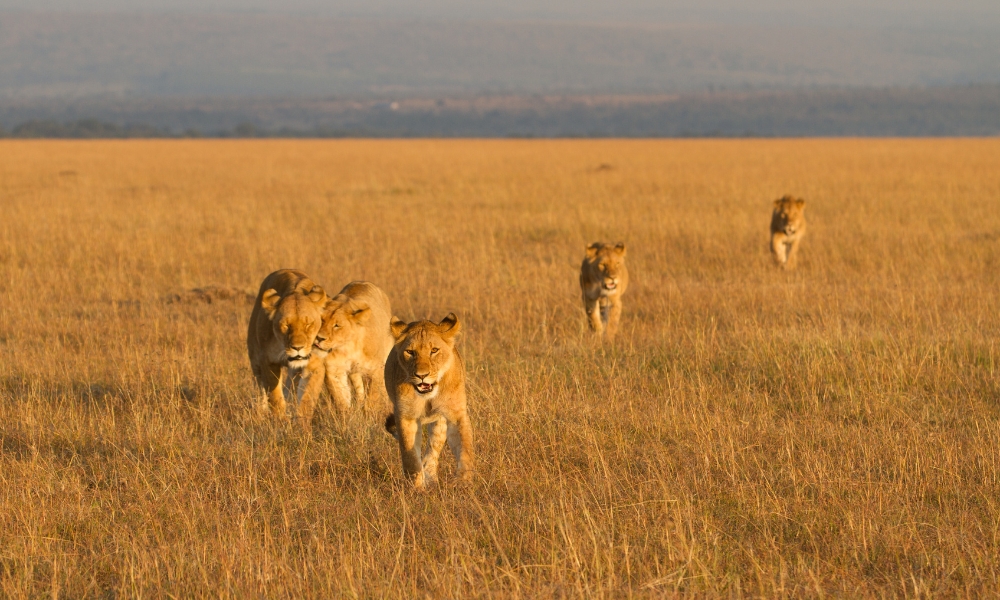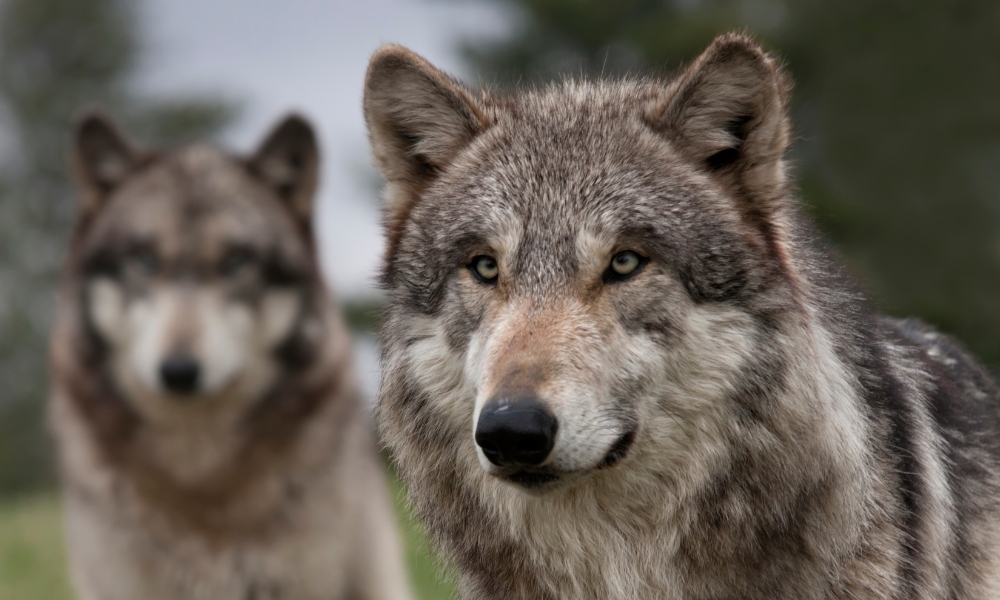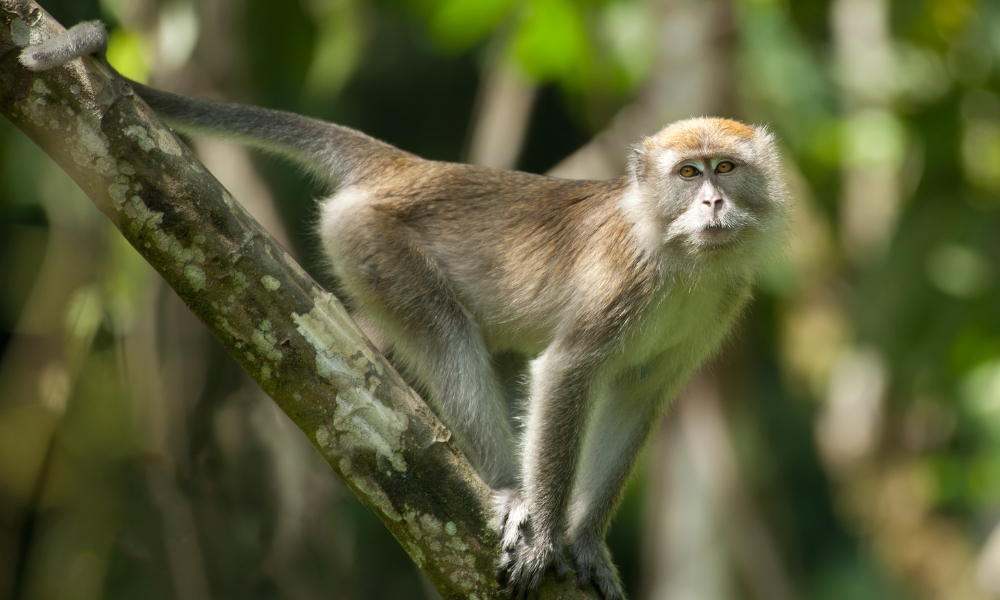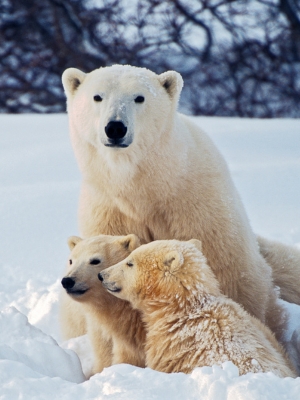The term “biodiversity” — short for biological diversity — describes all the variations of life on earth and the natural interactions between living things within ecosystems. It is estimated that around 1 million species are now threatened with extinction, many in the coming decades. The extinction of so many species would lead to ecosystem collapse. This is what we call the “biodiversity crisis.”
In addition to the consequences for the natural world, the loss of so many species of animals and plants also poses a major threat to the well-being of human communities. To thrive, humans depend on food systems, clean air, climate, and freshwater produced by healthy ecosystems, which would all be put in serious jeopardy by such a devastating loss of biodiversity.
The impacts of extinction will be especially hard felt in the Global South. For instance, climate models indicate that sub-Saharan Africa will be particularly affected by the negative impacts of climate change on agricultural production and food security. If urgent action is not taken, by 2100 – less than 80 years from now – climate change could also lead to the disappearance of more than half of the continent’s bird and mammal species, a 20-30% decline in the productivity of its lakes, and a significant loss of its plant species.
What Is Causing the Biodiversity Crisis?
There are numerous factors driving the biodiversity crisis, but ecologically unsustainable exploitation of wild species is the leading driver of biodiversity loss in our oceans and the secondary driver on land. Other factors include changes in land and sea use; climate change; pollution; and invasive species.
In short, the biodiversity crisis is caused by human activities, which exploit and extract resources from the natural world at an unsustainable and growing scale.
How Born Free USA Is Responding
Born Free’s tagline expresses our dedication to keeping wild animals where they belong – in the wild. As such, it is part of our mission to ensure that wild places remain wild; that natural habitats continue to exist where wildlife can live and flourish in safety. Born Free USA is focusing its work to counter the biodiversity crisis on the two biggest drivers of extinction – harmful changes affecting ecosystems and unsustainable exploitation of threatened species.

Fighting to Preserve Biodiversity in West Africa
West Africa is one of the most biologically diverse regions on earth, and one of the most vulnerable to the impacts of the biodiversity crisis. Born Free USA has been on the ground in the region for the last several years, working in partnership with member countries in the Economic Community of West African States (ECOWAS) to combat illegal wildlife exploitation.
In October 2022, ECOWAS countries launched a plan to combat biodiversity loss. The ECOWAS appeal for an ambitious global response to the biodiversity crisis is a policy document setting up the measures needed for a robust response to the biodiversity crisis and promoted as guidance on coordinated ECOWAS positions for negotiations on climate at high profile international meetings, including the Convention on International Trade in Endangered Species of Wild Fauna and Flora (CITES) Conference of Parties in November 2022.
Today, only 15% of the world’s land and 7% of the oceans are protected. Through this appeal, ECOWAS countries advocated for:
- The expansion of protected areas to at least 30% of the planet by 2030 (“30 by 30”).
- Prohibiting environmentally damaging activities.
- A commitment to immediately halt human-induced extinction of wild species.
- A commitment to ratify a high-seas treaty to enable the designation of protected areas in the global ocean.
- A commitment to eliminate the use and trade in wild species that is illegal, unsustainable, or poses a risk of zoonotic disease transfer to humans, wildlife, or other animals.
These regional efforts played a significant role in securing the adoption of ambitious global commitments in the Kunming-Montreal Global Biodiversity Framework (KM-GBF), the reference document adopted in December 2022 to set new goals and targets for organizing a global response.
Born Free USA is focusing its work on the ECOWAS region on providing targeted support to member states focused on curtailing wildlife crime; stopping unsustainable international trade in threatened species; strengthening protected areas; and operationalizing the implementation of commitments made in the ECOWAS Appeal.

Strengthening the Endangered Species Act
Born Free USA also works to protect biodiversity closer to home by safeguarding and strengthening the Endangered Species Act (ESA). The ESA, enacted into law in 1973, is responsible for preventing the extinction of 99% of listed species, including such iconic American species as the bald eagle, the gray wolf, and the grizzly bear. The ESA also enjoys the support of 90% of American voters, making this law not only extremely effective, but also extremely popular.
Yet, despite the ESA’s effectiveness and popularity, it is under assault by lawmakers who seek to weaken and undermine it. There have been hundreds of direct attacks on the ESA since 1996, including anti-ESA decisions and actions by federal agencies, proposed anti-ESA legislation, and legislative “riders,” which add anti-ESA provisions to bills.
Born Free USA defends the ESA by advocating against legislation and policies that seek to weaken it and by educating the public about the importance and effectiveness of this crucial law. We also advocate for the protection of specific species under the ESA, including the African lion (granted ESA protection in 2015) and Great Lakes wolves (granted protection in 2017).

Protecting Macaques in Southeast Asia
We are currently working to secure ESA protection for macaque species in Southeast Asia. The long-tailed macaque currently represents one of the most extreme examples of a species being so widely exploited by humans that it is now threatened with extinction. Long-tailed macaques are threatened with declining habitats across their native range; overutilization for scientific, commercial, and recreational purposes; inadequate regulatory framework; and culling due to human-macaque conflicts like crop foraging.
In 2023, Born Free USA, together with dozens of other leading animal welfare and conservation organizations, petitioned the U.S. Fish and Wildlife Service (USFWS) to list long-tailed macaques as Endangered or Threatened under the ESA. Click here to add your name to the petition.
We Are All in this Together
While some regions and economies are more vulnerable to the impacts of the biodiversity crisis than others, the impending loss of so many species – and the destruction of so many ecosystems – will impact us all. Born Free USA is on the front-line of the fight to protect the natural world and, as our supporter, you are there by our side.
Keep Wildlife in the Wild,
Alice
This article originally appeared in the Spring/Summer 2024 edition of Born Free USA’s magazine, Animal Issues Digest.
Dear Reader,
We are a nonprofit committed to wildlife conservation, welfare, and rescue. Making resources free and widely distributed, like our news items, is an important part of our mission. If you found this article helpful, enjoyable, or enlightening, please donate to help keep these resources available, and Keep Wildlife In The Wild.
Thank You,
The Born Free USA Team

 Dear Reader,
Dear Reader,